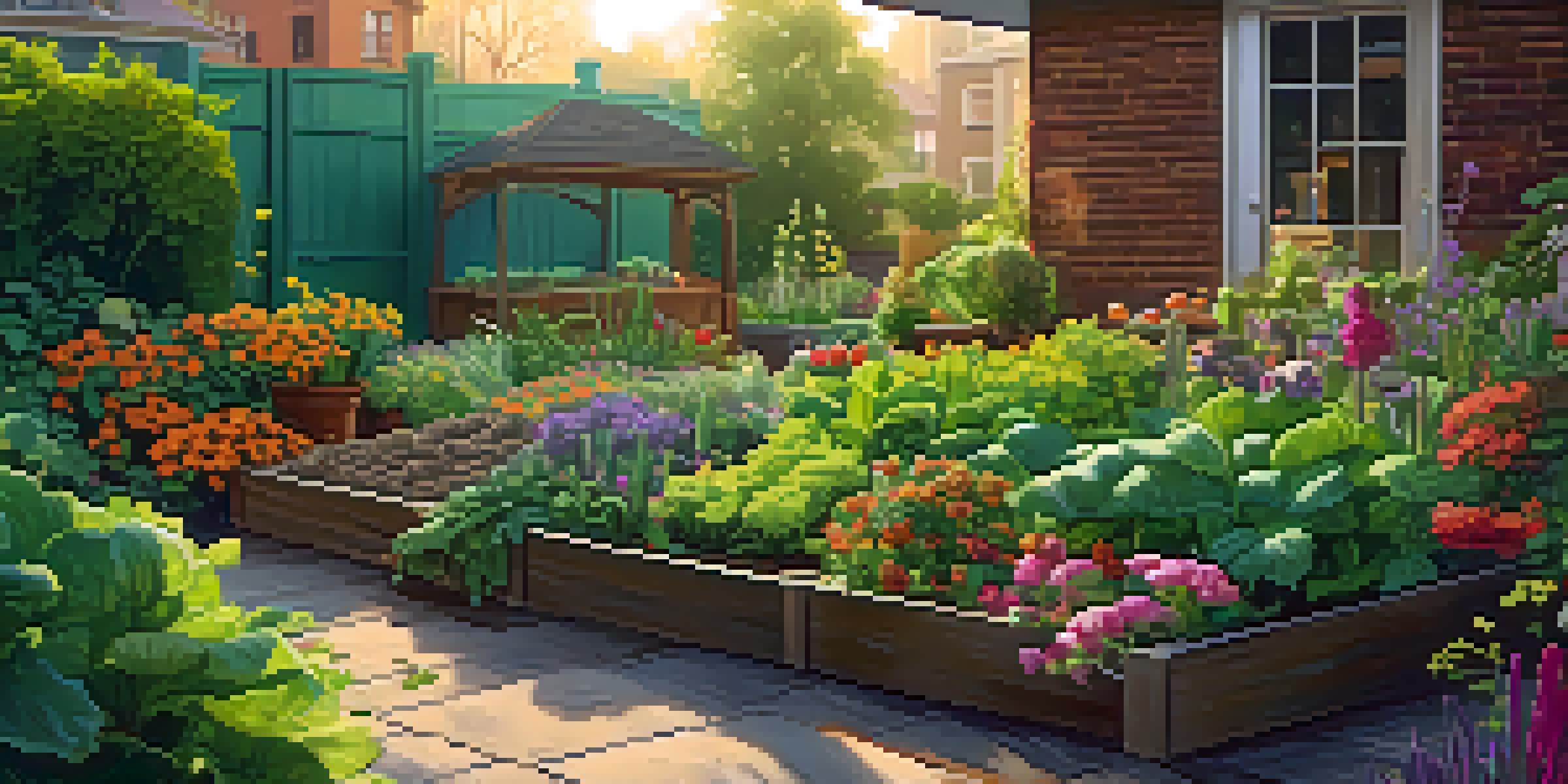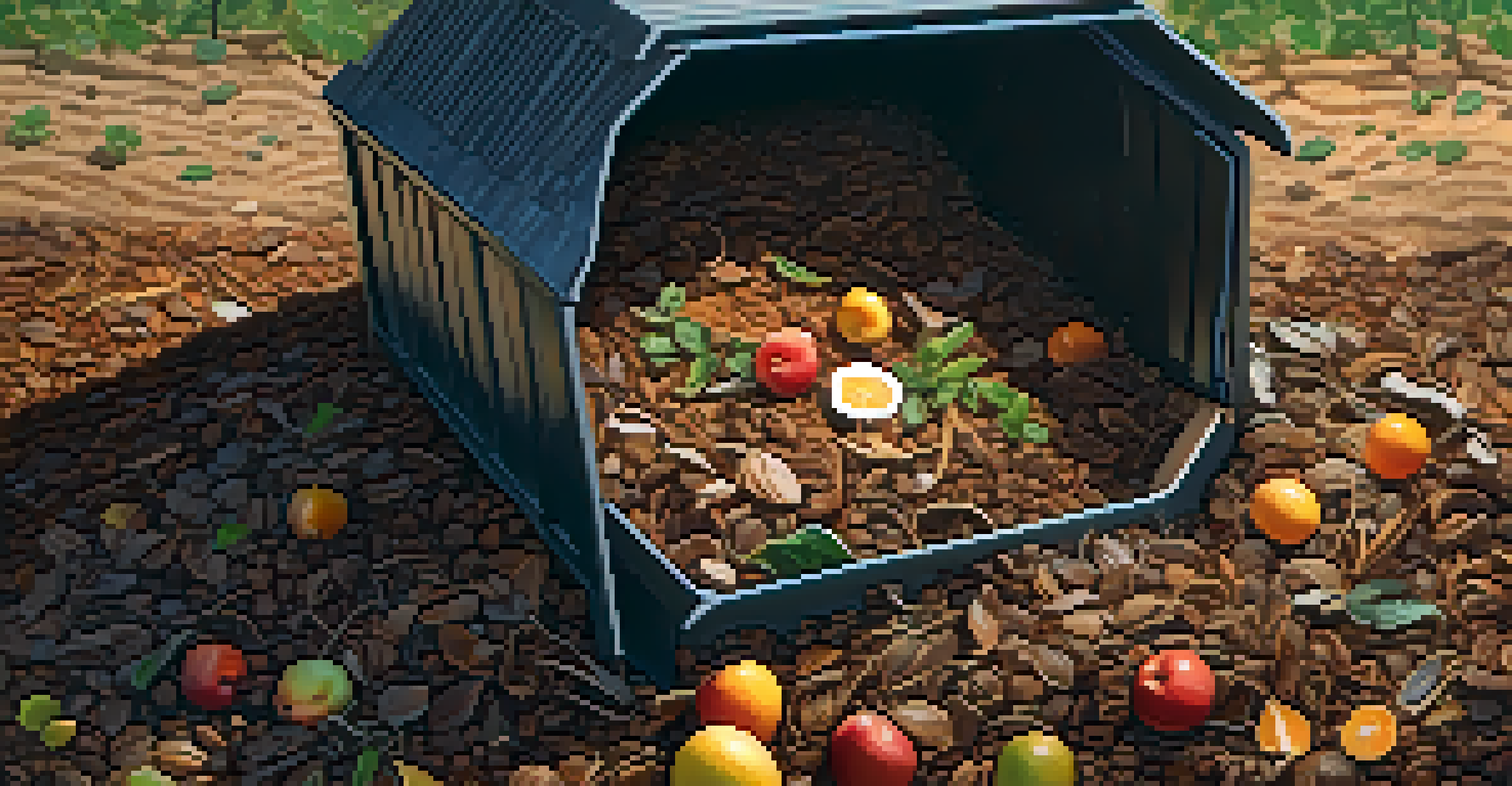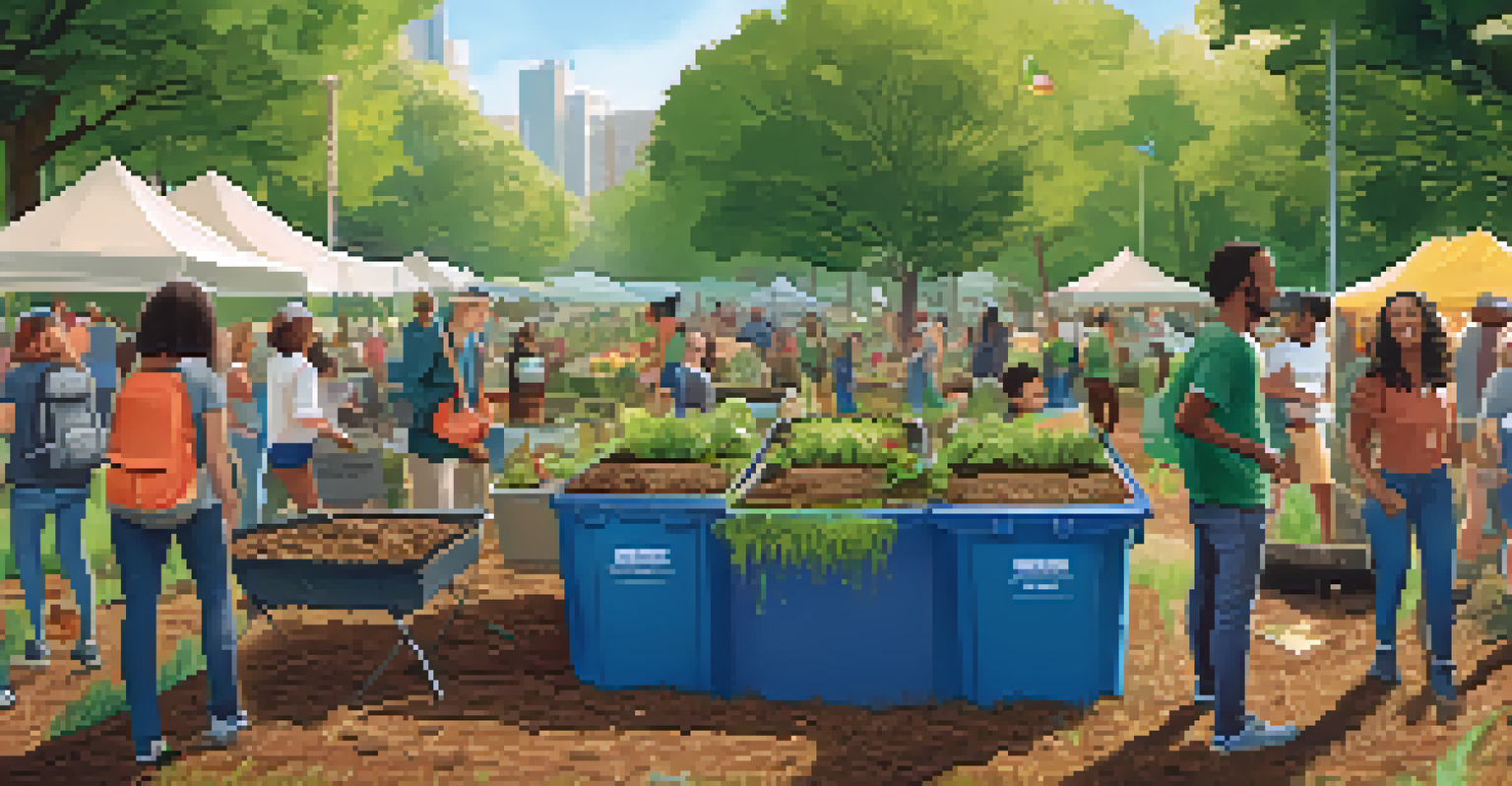Urban Composting: Turning Waste into Valuable Garden Resource

What is Urban Composting and Why is it Important?
Urban composting is the process of recycling organic waste from homes and businesses into nutrient-rich compost. This practice not only reduces the amount of waste sent to landfills but also enhances the health of urban soils. In cities where green space is limited, composting offers a sustainable solution for improving soil quality in gardens and parks.
Composting is a great way to make a positive impact on the environment while enriching the soil in your community.
By composting, we can divert food scraps, yard waste, and other organic materials that would otherwise contribute to landfill overflow. This is crucial, as landfills can release harmful greenhouse gases like methane, which exacerbate climate change. Urban composting helps mitigate these issues while promoting a circular economy in our communities.
Furthermore, the benefits extend beyond waste reduction. Composting enriches the soil, helping urban gardeners grow healthier plants. It fosters biodiversity by creating a vibrant ecosystem where beneficial microorganisms can thrive, ultimately leading to a more resilient urban environment.
Getting Started with Urban Composting
Starting your composting journey is easier than you might think! Begin by selecting a compost bin that fits your space, whether it's a small countertop container or a larger outdoor bin. Many cities offer composting programs or resources, so check with your local waste management for guidelines and available options.

Next, you'll want to gather your compostable materials. Ideal items include fruit and vegetable scraps, coffee grounds, eggshells, and yard debris like leaves and grass clippings. It's important to maintain a good balance of 'greens' (nitrogen-rich materials) and 'browns' (carbon-rich materials) to create the right environment for decomposition.
Urban Composting Reduces Waste
By recycling organic waste, urban composting helps divert materials from landfills, reducing greenhouse gas emissions and promoting a circular economy.
Once your materials are collected, layer them in your compost bin and turn them regularly to aerate the mixture. This helps speed up the decomposition process. With a little patience and care, you'll soon have rich, dark compost ready to nourish your plants and garden.
Common Misconceptions About Urban Composting
Many people believe that composting is complicated or smelly, but that couldn’t be further from the truth! When done correctly, composting is a clean and odor-free process. By following a few simple guidelines, such as avoiding meat and dairy products, you can effectively manage your compost without unpleasant odors.
The greatest threat to our planet is the belief that someone else will save it.
Another common misconception is that composting requires a lot of space. In reality, even those living in small apartments can compost! Options like vermicomposting, which uses worms to break down waste, can be done in small containers and fit right on your kitchen counter.
Lastly, some may think that composting is only for gardening enthusiasts. However, anyone can compost, regardless of gardening skills! It’s a great way to contribute to sustainability efforts, enrich the soil, and engage with your community.
The Environmental Impact of Urban Composting
The environmental benefits of urban composting are substantial. By reducing waste, composting helps lower the carbon footprint associated with garbage collection and landfill operations. Additionally, compost improves soil health, which in turn promotes better water retention and reduces the need for chemical fertilizers.
Urban areas often face challenges like soil degradation and urban heat islands, which can impact local climates. Composting can help combat these issues by enriching soils and supporting urban greenery, leading to cooler and more pleasant environments. This is particularly important as cities continue to grow and face the effects of climate change.
Composting Benefits Urban Soils
Compost enriches urban soils, enhancing plant health and biodiversity, which is crucial for thriving green spaces in cities.
Moreover, composting fosters community engagement by bringing people together around a common goal. Neighborhood composting initiatives not only reduce waste but also create opportunities for education, collaboration, and connection among residents, ultimately strengthening community bonds.
How to Maintain Your Urban Compost System
Maintaining an urban compost system is key to producing high-quality compost. Regularly turning the compost helps to aerate it, which speeds up decomposition and prevents odors. Aim to turn your compost every few weeks, ensuring that materials are well mixed and moist but not overly wet.
Monitoring the balance of greens and browns is also essential. If your compost is too wet and smelly, add more brown materials like dry leaves or newspaper. Conversely, if it’s too dry, incorporate some greens or water it lightly to help the decomposition process.
Lastly, patience is crucial! Depending on various factors like temperature and moisture, it can take anywhere from a few weeks to several months for compost to be ready. Keep an eye on your compost, and you’ll soon see the transformation from kitchen scraps to nutrient-rich soil amendment.
Using Compost in Your Urban Garden
Once your compost is ready, it’s time to put it to work in your garden! Compost can be used as a top dressing for plants, mixed into garden beds, or even made into compost tea to give your plants a nutrient boost. It enhances soil structure, promotes healthy root development, and helps retain moisture in the soil.
In urban settings, where soil can often be poor or contaminated, compost is especially beneficial. It helps to improve soil fertility and supports the growth of a diverse range of plants, from vegetables to flowering perennials. Incorporating compost into your gardening routine can lead to a flourishing garden and a bountiful harvest.
Community Engagement through Composting
Sharing composting knowledge and establishing community systems fosters collaboration, education, and a stronger commitment to sustainability.
Additionally, using compost supports sustainable gardening practices. By recycling organic matter, you contribute to a healthier ecosystem, reduce waste, and promote biodiversity in urban areas. This creates a more resilient urban landscape, benefiting both you and the environment.
Sharing the Benefits of Urban Composting with Others
Urban composting is not just an individual effort; it can be a community endeavor! Consider sharing your composting knowledge and experience with friends, family, or neighbors. Organizing community workshops or composting events can inspire others to start their own composting journeys.
You can also collaborate with local community gardens or schools to establish shared composting systems. This not only helps reduce waste collectively but also creates a space for learning and community engagement. The more people involved, the greater the impact on waste reduction and soil health.

Finally, take advantage of social media to showcase your composting efforts! Sharing tips, successes, and challenges can motivate others to join in the movement. By spreading awareness and fostering a culture of sustainability, we can transform urban environments into greener, more vibrant spaces.